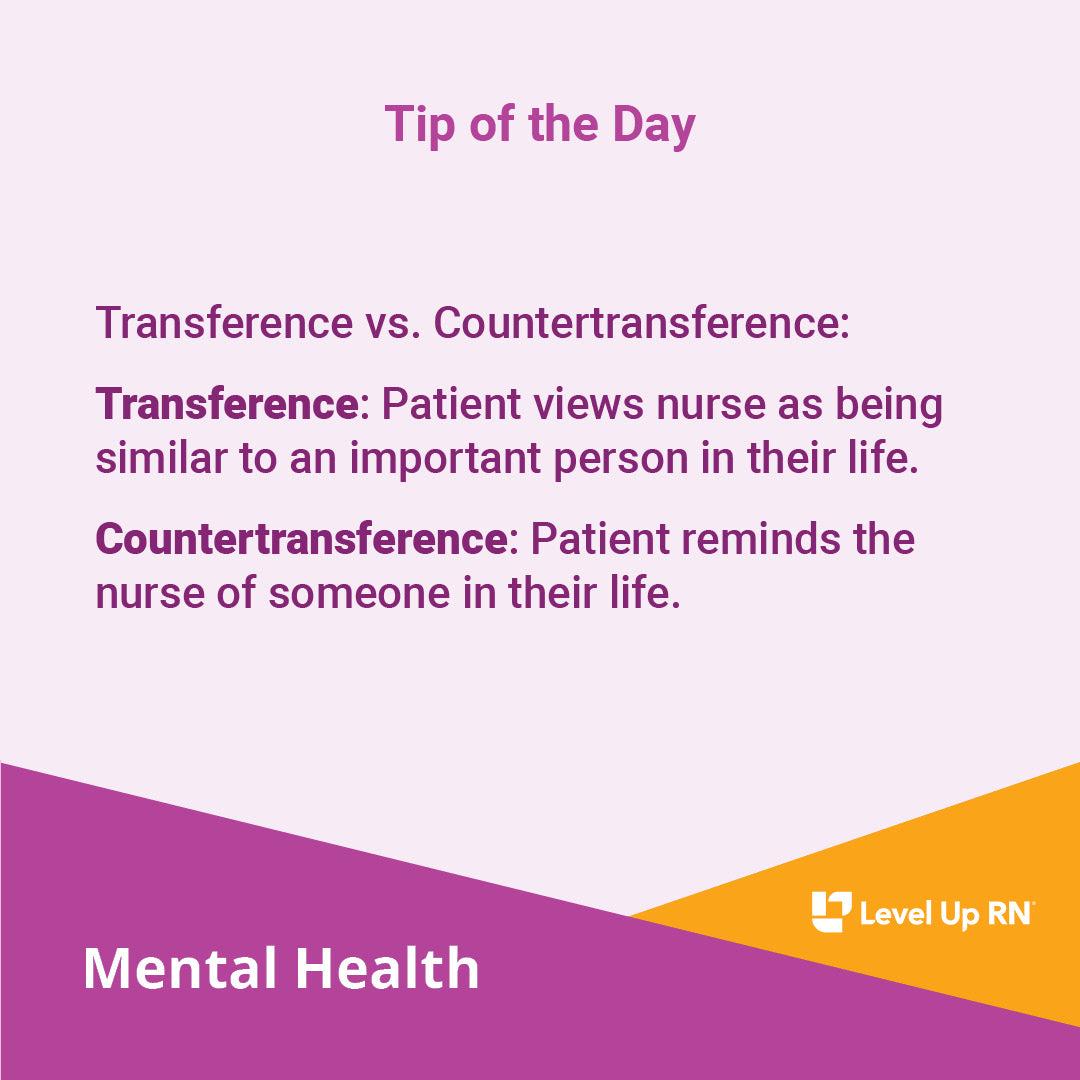With transference, the patient views nurse as being similar to an important person in their life. Countertransference refers to when patient reminds the nurse of someone in their life.
What is Countertransference in Nursing?
Countertransference in nursing is whenever the nurse unknowingly transfers their unresolved thoughts, feelings, and emotions onto a client. This can be a problem because it can lead to a nurse potentially pushing a patient into action before they are ready, harshly condemning or judging a patient, desiring a relationship outside of the appropriate boundaries, or even transferring bad moods onto the patient.
What is Transference in Nursing?
Transference occurs all the time in our everyday interactions and is where we may be reminded of someone in the behaviour of others. So specifically in nursing, it is when a patient will view the nurse as someone who is similar to an important person in their life.
You can learn more about the differences between transference and countertransference in our Psychiatric Mental Health Nursing Flashcards!
Check out our in-depth article on transference vs. countertransference as part of our overall explanation of the nurse-client relationship & therapeutic communication in the psychiatric mental health setting!



